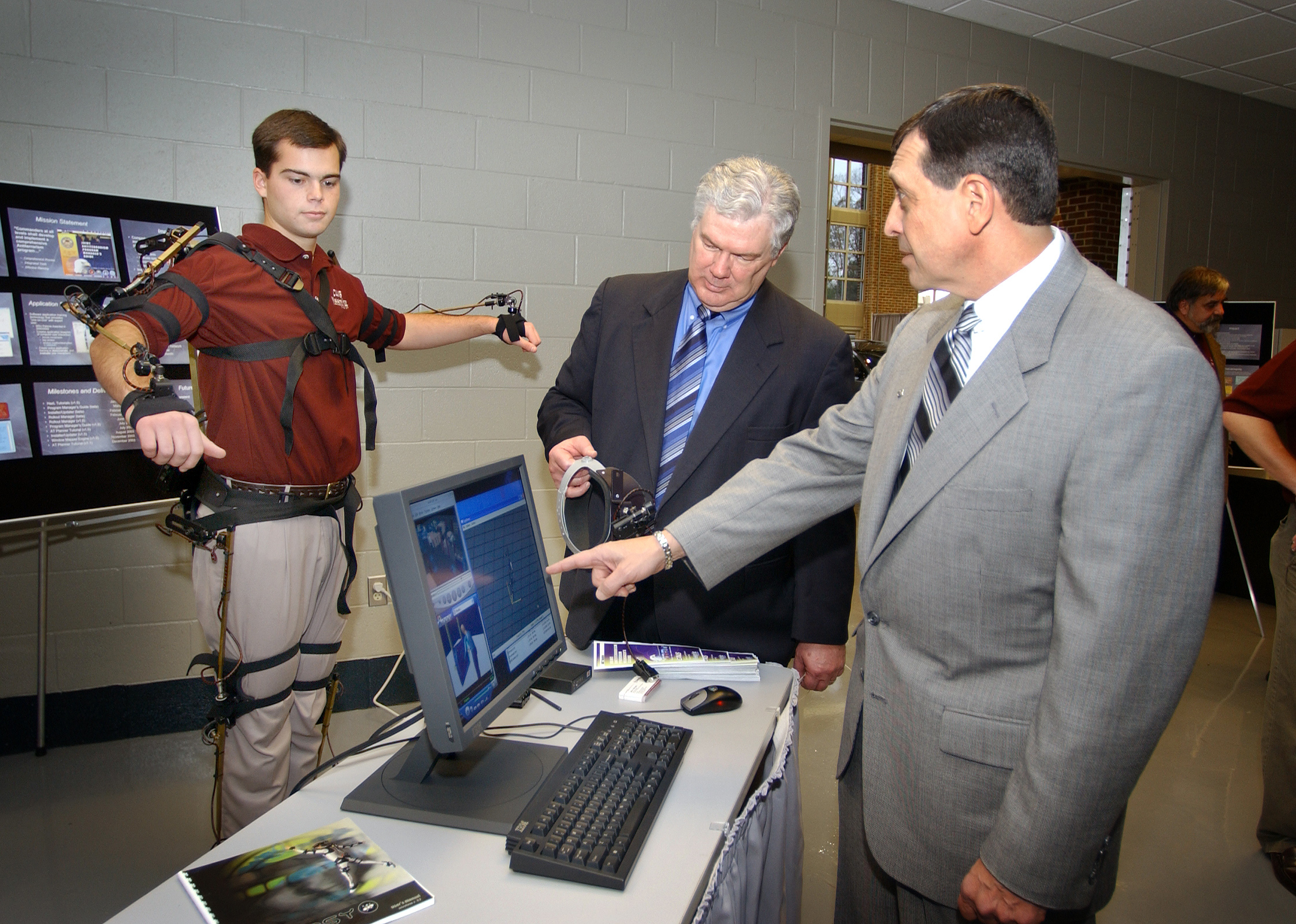Contact: Maridith Geuder

Mechanical engineering freshman Brandon Witbeck (l) of Starkville demonstrated a motion capture suit Thursday during opening ceremonies for Mississippi State University's Center for Advanced Vehicular Systems. Looking on at the new Starkville facility were J. Donald Trotter (c), CAVS interim director, and John P. Calandro, Nissan director of human relations and administration.
The state of Mississippi and Mississippi State are unveiling a state-of-the-art research center designed to reduce product development time, improve efficiency and increase safety in automobiles.
Officially opened Thursday, the $9 million, 45,000-square-foot Center for Advanced Vehicular Systems draws on the university's longstanding high-performance computing expertise to develop manufacturing methods that yield high-quality vehicles with advanced features. Researchers also will be working to reduce time-to-market and production costs.
A companion facility, a 23,000-square-foot CAVS extension center near Canton will officially be dedicated Dec. 15.
The Mississippi State-based automotive research program was established in 2001 as part of the state's successful bid to attract Nissan Motor Co. The automobile manufacturer in May rolled its first Quest minivan out at its new 3.5-million square-foot facility at Canton, where the company will employ more than 5,000 and produce more than 400,000 vehicles annually.
Gov. Ronnie Musgrove, who called the center "an investment in our future," said CAVS is "a welcome addition to our growing automotive industry."
MSU President Charles Lee said CAVS also will have an impact beyond the state.
"This facility, and the engineering extension center in Canton, will significantly expand the state's potential to become the hub of a new automotive development and manufacturing corridor in the Southeast," Lee said.
Lee's views were echoed by Stephen Hale, executive director of the Mississippi Development Authority, who said CAVS "gives the state significant leverage in recruiting other automotive manufacturers." The state may establish future CAVS centers to target specific plant needs for new manufacturers, Hale added.
While there has been an initial partnership with Nissan, both state and university officials emphasized that the CAVS centers have a broad mission of extending technology to a variety of industries.
"One of the overarching goals of CAVS is to make Mississippi a competitive player in a global marketplace," said Donald Trotter, MSU's associate vice president for strategic initiatives and the center's director.
Research efforts at the new facility are focused in three areas: computational manufacturing and design; alternative power systems; and human and systems engineering. Through the center's outreach and extension effort, research will be translated to direct engineering support, on-site educational programs and workforce development.
Included in the new high-tech center are 5,000-square-foot high-bay laboratories, and 9,000 square-foot lab for materials, human factors and alternative power research.
As a major unit within the university's already established Engineering Research Center, CAVS will draw on a variety of high-performance computing resources.
Over the past decade, the ERC's computer capabilities have placed MSU in the top 20 supercomputing powers among national academic institutions.
NEWS EDITORS/DIRECTORS: For more information, visit http://www.cavs.msstate.edu/ or telephone Dr. Trotter at (662) 325-3671.